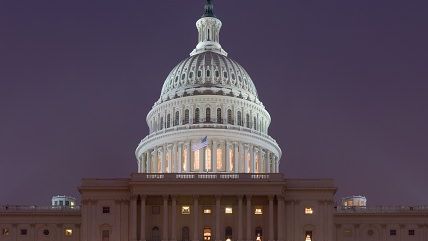Saving Our Way into the Poorhouse
Government claims its spending programs save money, but it keeps spending more money

So when do the refund checks arrive?
Surely the checks are in the mail. Surely every American taxpaying citizen is due a big, fat financial windfall any second. Matter of fact, you might want to stop reading and check your mailbox right now.
Not there? Shucks. Well, give it a few minutes. After all, they promised.
"For every dollar we invest in pre-K," the president insisted a couple of weeks ago, "we save at least twice that down the road in reduced crime." Sounds like a bargain, doesn't it? Head Start's 2014budget was about $8.5 billion. You do the math.
That's not all we'll save, though. Obama also likes to say that for every dollar we invest in quality pre-K, we get seven dollars back. Fact-checkers contend he's stretching the truth, but let's not quibble over details like the truth when money is at stake.
The savings from pre-K might sound impressive, but don't be fooled. They're nothing compared to the savings from Meals on Wheels. According toWashington Sen. Patty Murray, "for every dollar we invest in Meals on Wheels, we can save up to $50 in Medicaid spending." Chew on that, why don't you.
What other investments pay off? Health care, among other things. According to apiece in Harvard Business Review, "For every dollar we invest in our workers' health, we see a return of more than $4 in reduced health care costs, lower absenteeism, and improved productivity." The same goes for the National Institutes of Health. "For every dollar we invest in the NIH," says Maryland Sen. Ben Cardin, "we know that $2.21 goes back into the economy."
Public transportation, too, provides a whopping big payoff. "Every $1 invested in public transportation generates approximately $4 in economic returns." Who says so? Why, the American Public Transportation Association, which certainly has no stake in the issue.
But it's not just public transit! "Every dollar invested in transportation infrastructure," says the Alliance for American Manufacturing, "returns $3.54 in economic impact." Oh, and "every $1 of federal transportation investment returns between $1.80-$2.00 of additional real goods and services produced in the economy," according to a studyprepared for (you guessed it) the American Road and Transportation Builders Association.
This must be why the federal government, and America more generally, are rolling in dough. The federal Department of Transportation budget alone is $84 billion. Total U.S. spending on health care is in the $3 trillion range — and while not all of that is spent on "workers," surely that investment "pays for itself," as politicians like to say.
***
Health care is an even better deal these days thanks to Obamacare. We have it on the good authority of The Washington Post that "Obamacare pays for itself," partly "by taxing the rich."
What other programs pay for themselves? San Diego Mayor Jerry Sanders' investment in the arts scene, among other things. "A new city report claims the city's ($6.4 million) investment of hotel-room taxes in arts groups more than pays for itself," according to news reports.
Movies pay for themselves, too. Every dollar Virginia invests in movie productions brings almost $12 to the state economy, claims the Virginia Film Office.
Coastal restoration is a real money-maker, too. Every dollar invested in coastal restoration "returns more than $15 in net economic benefits," according to the Center for American Progress.
"Savings from health benefits dwarf the estimated $14 billion cost of (carbon) cap-and-trade program," according to research funded by the EPA.
Family planning for poor women? Yup. It "saves an estimated $7 in Medicaid and other public expenditures" per dollar spent, writes Washington Post columnistCatherine Rampell.
***
Apparently, every government program either pays for itself or brings a fantastically high return on the investment: The national helium reserve. Federal crop insurance. AmeriCorps.
If our political and business leaders are to be believed — and why would anyone doubt their word? — any time the government spends a dollar, society gets far more than a dollar back. Very often it gets several dollars back by eliminating the need to spend more dollars on government programs elsewhere.
This is a neat trick and no mistake. But it does raise an obvious question: If seemingly every government program saves more than it costs, then why does government spending keep going up?
This column originally appeared at the Richmond Times-Dispatch.


Show Comments (32)